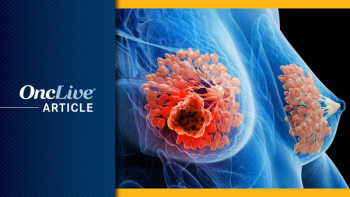
Conclusion: Future Direction of Breast Cancer Treatment
For High-Definition, Click
In the final segment, moderator Adam M. Brufsky, MD, PhD, asks each panelist for their final thoughts on current and emerging therapies for the treatment of breast cancer. Kimberly L. Blackwell, MD, believes the next steps for breast cancer care will involve connecting scientific advances to the correct patient population.
The next wave of big advances will likely revolve around the PI3 kinase pathway and CDK 4/6 inhibition, Joyce A. O’Shaughnessy, MD, believes. Additionally, for patients with triple-negative breast cancer (TNBC), promising findings on carboplatin plus veliparib were presented from the I-SPY2 trial showing an improvement in pathologic complete response rates, adds O’Shaughnessy.
Immune modulation represents an exciting area that has recently emerged in breast cancer, believes Hope S. Rugo, MD. Studies have shown promise for HER2-targeted vaccines. Additionally, recent studies have highlighted the potential role for tumor infiltrating lymphocytes in identifying response to HER2-targeted therapies.
The treatment of HER2-positive disease has advanced substantially, particularly with the approval of T-DM1. Adding to this, other antibody drug-conjugates (ADC) are being studied, specifically as treatments for patients with ER-positive disease, notes Denise A. Yardley, MD. Moreover, in TNBC, the ADC glembatumumab vedotin is currently being explored.




































